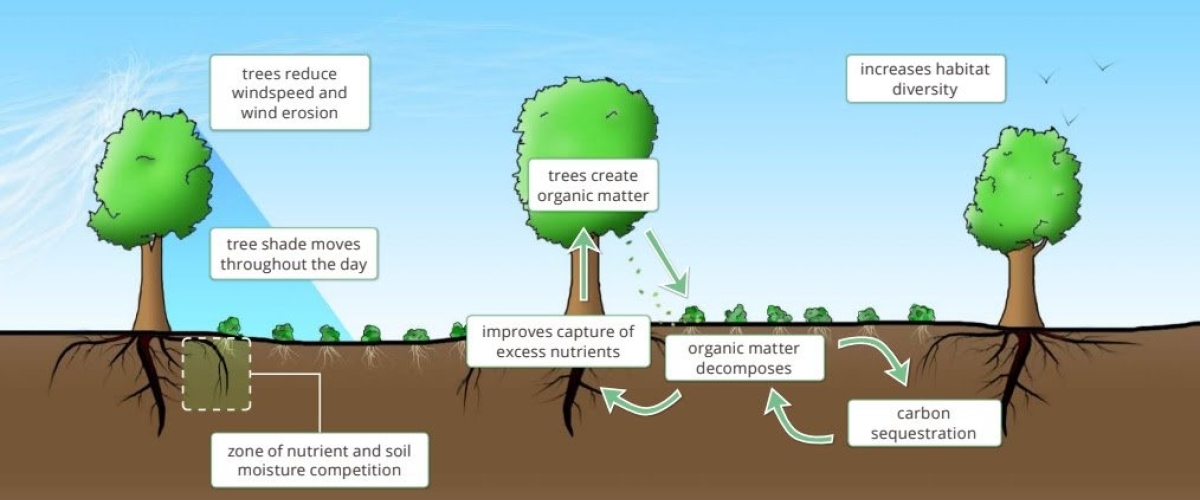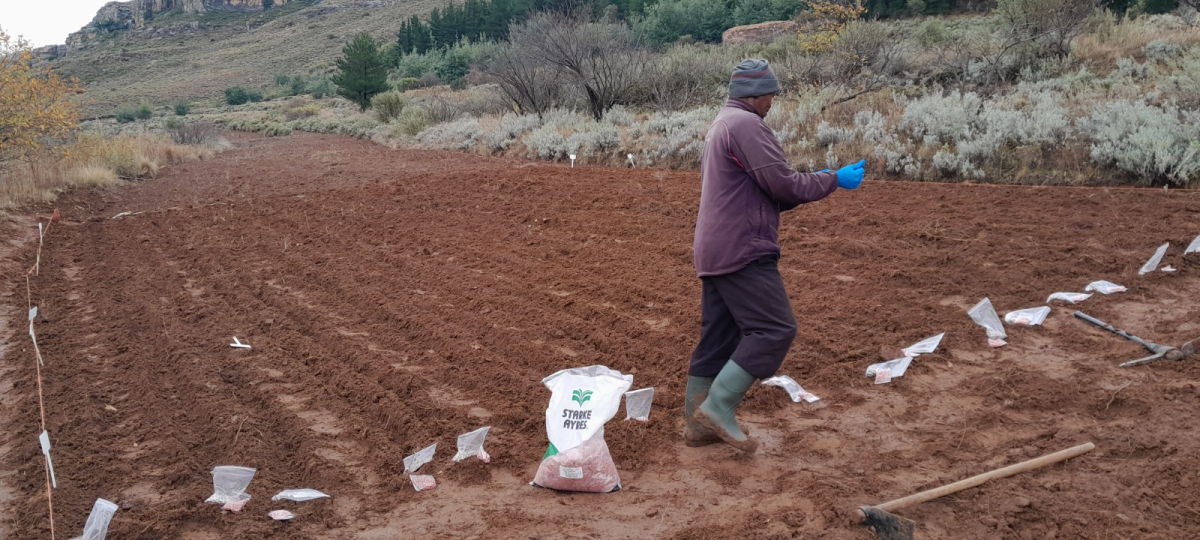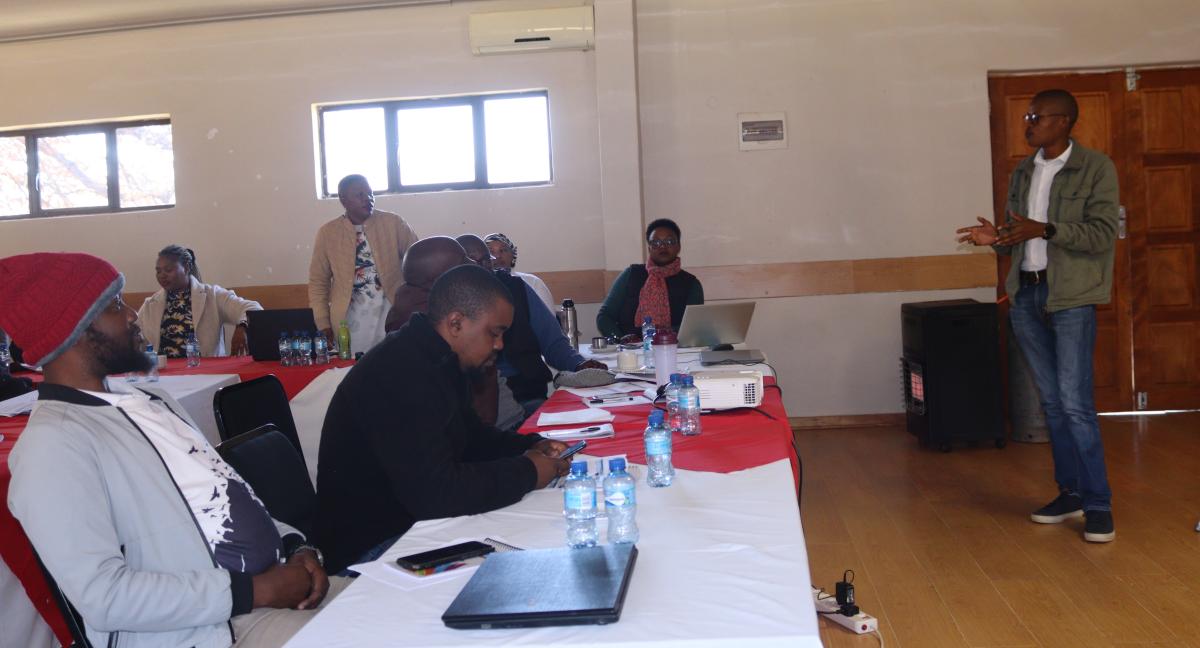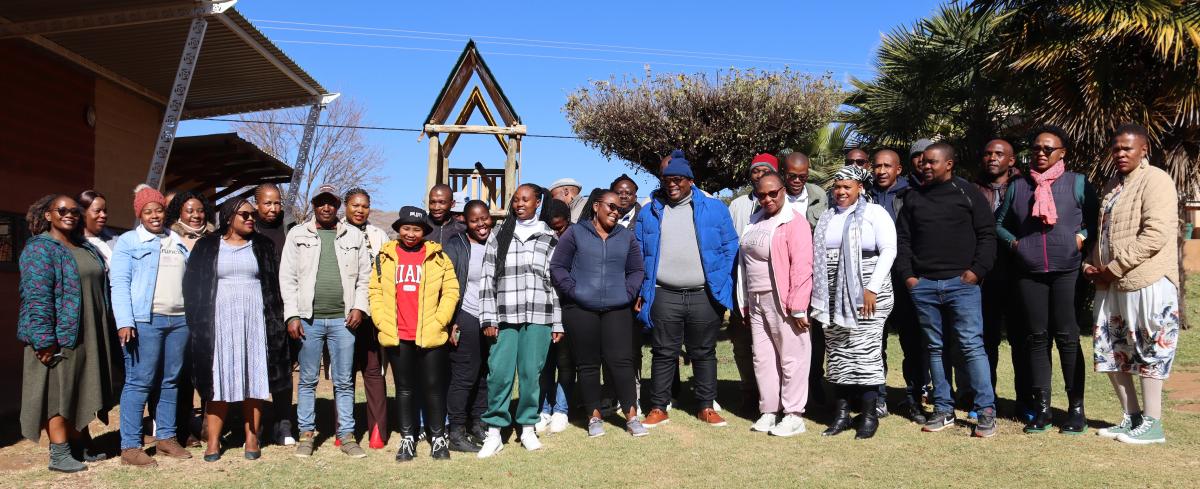
Twenty (20) extension officers from four districts of Lesotho (Mokhotlong, Leribe, Maseru and Mohales’ Hoek) were trained on alley cropping approach from the 17th to 20th June 2024. The training was conducted as one of the key activities of an on-going sub-project under the Agricultural Productivity Programme for Southern Africa (APPSA) titled “Promotion of vegetable production under intercropping systems” led by Mr Rets’elisitsoe Leku from the Department of Agricultural Research.
Alley cropping is an agroforestry system where trees are planted in rows or alleys within agricultural fields, with crops grown in the spaces between the tree rows - Ivezić, V., Lorenz, K., & Lal, R. (2022).
It holds quite a number of benefits which suffice for sustainable agricultural productivity:
• This system combines the benefits of both trees and crops, providing multiple ecosystem services such as increased soil organic carbon (SOC) (Nutrients are utilized by the tree and recycled by leaf drop and plant residues) sequestration, improved soil fertility, reduced soil erosion, and enhanced biodiversity.
- Alley cropping is considered a sustainable land management practice that can contribute to climate change mitigation and adaptation. It is also a strategy for soil carbon sequestration and the mitigation of greenhouse gas emissions within agroecosystems.
- Allows production of annual crops needed for cash flow while at the same time growing long-term fruity investments.
Optimization of Land use efficiency: allows two annual crops to be grown at the same time on same acreage.

Though trees are not yet visible in this piece of Alley cropping trial, some of the farmers are already practicing this improved management practice with prior knowledge of the Alley cropping system.
Mr Maboee Phamotse, on behalf of the Leribe District Agricultural Office expressed his gratitude to APPSA for equipping extension officers with skills during his opening remarks. Mr Phamotse indicated that extension officers would be able to empower the farming community and increase food security. He made a plea to the extension officers to take the training opportunity seriously, learn as much as possible and be free to interact with facilitators during the workshop.
Mr Rets’elisitsoe Leku highlighted that the purpose of the workshop was to introduce alley cropping approach and explore the benefits of intercropping in different agro-ecological zones of Lesotho with the aim of enhancing vegetable yields and soil health.

The training was structured in a way that it helped increase participants’ knowledge and understanding of soil health, soil sampling procedures. The workshop also covered production quite on potatoes, green peas and identification of gaps that hurdle the commodities in question. Participants were trained on the principles of good agricultural practices on peach and apple production as well as their preservation methods. Alley cropping as a farming system was extensively taught to the participants.

Mr Maboee, on behalf of the extension officers expressed their appreciation for the well-organized training by APPSA. He noted that the training came at the right time when several farming approaches are needed by the farming community to overcome the effects of climate related challenges. Mr Maboee concluded by indicating that he is hopeful that the participants will integrate the training insights into their daily duties.
The training workshop was attended by the District Horticultural Officers (DHOs), Area Extension Officers (AEOs), Agricultural Technical Officers (ATOs)-crop and Agricultural Assistants (AAs).
Source: Department of Agricultural Research (DAR) of Lesotho





